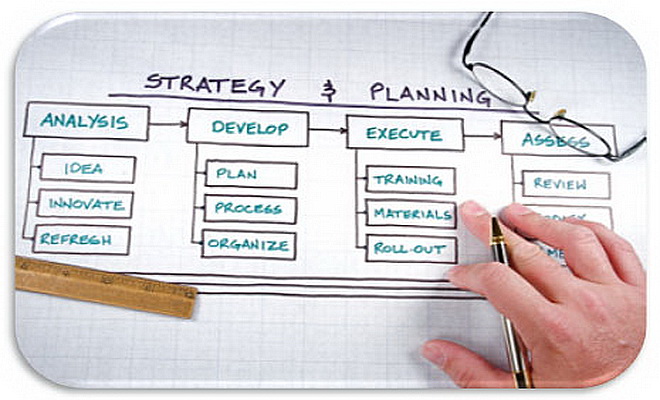
A good--or bad--project manager can make the difference between a project coming in on time and on budget and it is a failure. How can you spot a good project manager? CIO.com talked to experts and IT executives to find out.
CIO — Just because someone has the title of "project manager" does not mean he knows how to effectively manage projects, as many CIOs and other IT executives have learned the hard way.
So how can you tell a good project manager from a bad one? CIO.com surveyed project management experts and executives to learn what skills are required to successfully manage projects--that is, to ensure that projects are kept on track and stay on budget.
Here are seven skills project managers need in order to be effective and successful:
Skill No. 1: Be highly organized and a good multi-tasker.
A good project manager knows how to "manage multiple projects or tasks and track issues on a daily basis," says Hilary Atkinson, director of the Project Management Office at Force 3, a business solutions provider.
The difference between the success or failure of a project is often "the difference between a project manager who is highly organized and one who is not," she says. "If a project manager is spending more time trying to figure out where information is rather than productively managing their project, failure is imminent."
Skill No. 2: Take charge and know how to lead.
"Project managers need to be good leaders," says Lew Sauder, senior project manager Geneca, which develops custom enterprise software. Specifically, "project management is about leading stakeholders and vendors to a successful outcome," states Brian Lee, partner at Navigate, a management consulting firm.
"Projects need to be led in a fashion that builds consensus while also fleshing out the real risks and roadblocks," he says. "Effective project managers paint a picture of a better tomorrow and inspire confidence in their team's abilities to realize that vision. They build credible relationships with key stakeholders to ensure alignment to the project's objectives and exude the confidence necessary to hold everyone participating in the project accountable."
Skill No. 3: Be an effective communicator.
"Being an outstanding communicator requires the project manager to consistently ensure they are clearly understood by all stakeholders; that all stakeholders understand what is expected of them throughout the project lifecycle; and that all stakeholders communicate effectively with one another as well as with the project manager," says Dr. Greg Thomas, CMC, PMP, and CEO of Roos Technologies International, a management consulting firm.
"Project managers need to be able to communicate status changes, good news and bad news to all levels of staff across different departments," says Nandi Hayes, an agent at Vitamin T, a talent agency for digital creatives.
"They also need to be able to distinguish who needs to know what, when they need to know it and how that information will be delivered," she says. "For example, a slight scheduling delay may need to be communicated to internal teams but not to the client if the key client review dates are not affected."
Skill No. 4: Know how and when to negotiate.
"Project managers must be excellent negotiators," says Brock Boddie, an associate program director at Huge, a global digital agency. "You're very often dealing with people who have divergent interests from your own or who appear to have no interest in understanding what you're trying to accomplish and why they should help you or fully participate," he says.
"A good project manager will invest time to understand and negotiate these relationships and figure out these stakeholder's interests so that she can triangulate what will make her project continue to move forward. Without these negotiating skills, you may spoil or ignore these critical relationships, making project success highly unlikely," Boddie says.
Skill No. 5: Be detail-oriented.
"Project management is all about the details--big ones and small ones," says Aziz Kara, head of Product Management and Design at Xtreme Labs, a mobile app and product developer. Therefore, project managers must be "meticulous about managing the details of every project and the impact each detail may have on the overall project success. Details can make or break a project, and the effective PM recognizes that."
Skill No. 6: Recognize and solve problems quickly.
"Inevitably, there will be times when problems and obstacles arise that involve immediate solutions," notes Michael Pesochinsky, cofounder and vice-president of GovernmentBargains.com, a free site that compiles and provides information about government auctions. "How a project manager handles these problems will separate him from the others."
Skill No. 7: Possess the necessary technical skills.
To be a good project manager, you "must have a solid knowledge of the platforms, software, and programs that your company regularly works with, even if your job is not actually technical," says Joel Gross, the founder, and CEO of Coalition Technologies, a Web design, and marketing firm.
And "a great project manager needs to have enough technical knowledge about areas of the project to be able to assign themselves to some of the tasks," adds Bob Herman, the owner of Tropolis Group, which provides IT, mobile, and social media management services to companies. Why? "Assigning yourself to some of the project tasks and successfully completing those tasks on time helps you earn the respect you need to successfully manage the project team."
Any other skills you think are essential to being a good project manager? Please leave a comment.
About the author: Jennifer Lonoff Schiff is a contributor to CIO.com and runs a marketing communications firm focused on helping organizations better interact with their customers, employees, and partners. Follow everything from CIO.com on Twitter @CIOonline, on Facebook.
NOTE: If you would like to PROMOTE link in this article, please let me know.
If you liked this article, please like DM Spot FB page, Twitter or LinkedIn and be notified when a new article is published.






